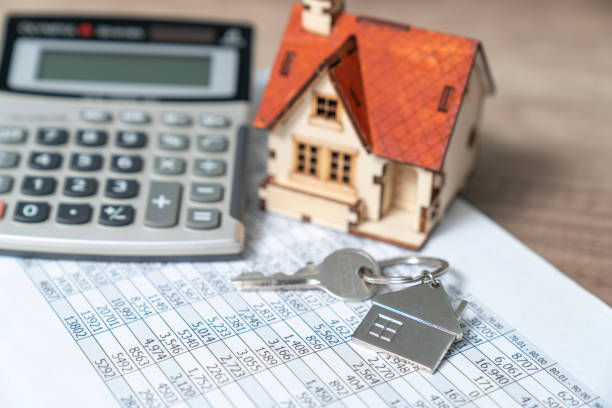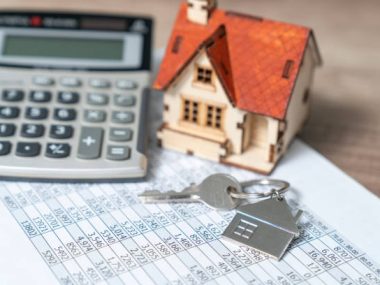How long does a mortgage preapproval last? Securing a mortgage preapproval is a crucial step in the journey towards homeownership, offering potential buyers a glimpse into their borrowing capacity and a head start in the competitive real estate market.
However, one pressing question often arises: how long does a mortgage preapproval last?
In the realm of real estate, timing can significantly impact a buyer’s prospects, influencing the property search, negotiation process, and even the eventual interest rate.
To navigate this aspect of the home buying process effectively, it’s essential to comprehend the factors that influence the duration of a mortgage preapproval and the potential consequences of an expired preapproval.
In this article, we’ll delve into the intricacies of preapproval timelines, considerations for extending or renewing preapprovals, and the strategies you can employ to make the most of this pivotal stage on your path to homeownership.
Also Read:
Does Switching Currency Violate Your Mortgage Contract?
Can You Sell a House with a Mortgage?
How Long Does a Mortgage Preapproval Last?
A mortgage preapproval serves as a valuable initial step for prospective homebuyers, outlining the loan amount they qualify for based on their financial profile.
Yet, a common query that arises is the duration of a mortgage preapproval’s validity.
Generally, preapprovals last around 60 to 90 days, but the specific timeframe varies due to several factors.
The stability of a borrower’s financial situation and the consistency of the documents provided are key determinants.
Changes in income, employment status, debt, or credit score during this period can impact preapproval terms.
Additionally, fluctuations in interest rates might affect the maximum loan amount one can secure.
When considering properties, the preapproval’s expiration date should align with the buyer’s timeline to avoid potential hurdles during negotiations or closing.
To extend or renew a preapproval, borrowers often need to resubmit updated financial information, which can then be reevaluated by the lender.
It’s crucial to keep communication lines open with the lender and ensure all necessary documentation remains current to avoid disruptions.
Overall, while mortgage preapprovals offer a valuable starting point, understanding their temporal limitations and the variables influencing their duration is pivotal for a smooth homebuying process.
Factors Influencing Preapproval Duration
The duration of a mortgage preapproval is influenced by a range of factors that collectively impact its validity period.
Firstly, the stability of a borrower’s financial situation plays a significant role.
Lenders assess factors such as income, employment history, and debt-to-income ratio to gauge stability.
Significant changes in these areas during the preapproval period can lead to a shortened validity.
Creditworthiness also plays a role; a lower credit score might result in a shorter pre-approval term.
Additionally, the lender’s policies and the complexity of the borrower’s financial situation can influence the duration.
Interest rates are a dynamic factor. Preapprovals are often tied to prevailing rates, and fluctuations might necessitate reevaluation.
The property’s type and location can impact duration, too – if the property type isn’t commonly financed or it’s in an area with uncertain market conditions, the preapproval might have a shorter term.
External factors like regulatory changes can also affect preapproval durations.
To maximize the validity, maintaining open communication with the lender, providing up-to-date documentation, and promptly addressing any changes in circumstances are essential.
Overall, understanding these multifaceted factors can help borrowers navigate the nuances of preapproval duration effectively.
Tips for Maximizing Preapproval Validity
Maximizing the validity of a mortgage preapproval involves strategic planning and diligent communication.
To extend the lifespan of your preapproval:
- Organized Documentation: Submit accurate and up-to-date financial documents promptly. This includes tax returns, pay stubs, and bank statements. A well-organized application can expedite the approval process.
- Maintain Financial Stability: Avoid making major financial changes during the preapproval period. Stable income, consistent employment, and manageable debts contribute to a longer pre-approval term.
- Avoid Large Purchases: Refrain from making significant purchases or incurring new debts, as these can impact your credit score and financial stability, potentially shortening the preapproval duration.
- Stay in Touch with Your Lender: Regularly communicate with your lender. Inform them of any changes in your financial situation or property search timeline. Proactive communication can help extend your preapproval if necessary.
- Understand Property Parameters: Ensure that the properties you’re considering align with your pre-approval. Searching within your preapproved budget prevents complications during negotiations and secures a suitable home within the preapproval timeline.
- Monitor Interest Rates: Stay informed about interest rate trends. If rates are rising, you might consider locking in your preapproval sooner to secure a better rate for a longer period.
- Plan for Renewal: Understand the renewal process. If your preapproval is nearing expiration, be prepared to provide updated documentation for reevaluation to extend its validity.
By following these tips, you can navigate the preapproval process strategically, maximizing the timeframe and increasing your chances of successfully securing your dream home within the preapproval parameters.
Also Read:
How Many Mortgages Can You Have?
Are Property Taxes Included in Mortgage?
Conclusion
In the dynamic landscape of mortgage preapprovals, understanding their duration is pivotal.
A pre-approval typically lasts 60 to 90 days, contingent on various factors like financial stability, creditworthiness, interest rate shifts, and property considerations.
Timely and organized communication with lenders, maintaining financial stability, and staying informed about market conditions are key to maximizing preapproval validity.
By comprehending these influences and adopting proactive measures, aspiring homeowners can navigate the preapproval timeline effectively, ensuring a smoother transition from preapproval to securing their desired property and realizing their homeownership goals.






